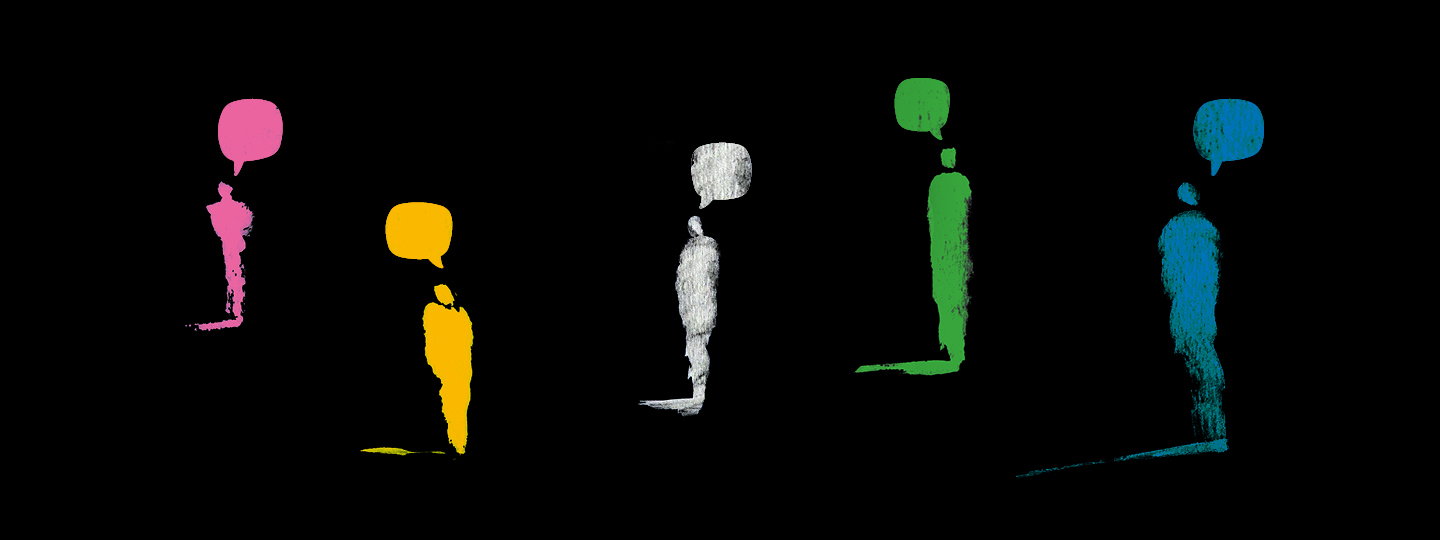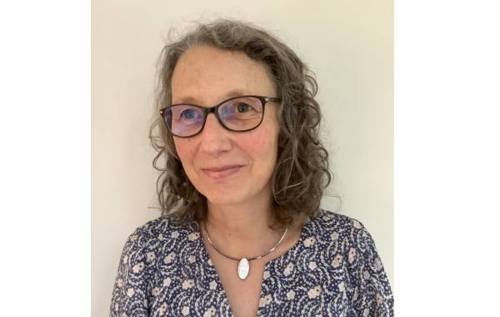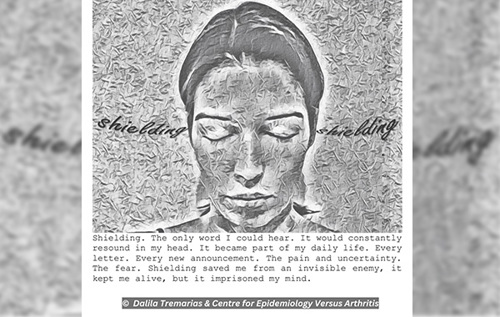Co-producing COVID Shielding Voices: Lynn's story
02 October 2023
 Our latest research, COVID Shielding Voices, shows the brutal toll of COVID-19 shielding on people with autoimmune arthritis and rheumatic conditions.
Our latest research, COVID Shielding Voices, shows the brutal toll of COVID-19 shielding on people with autoimmune arthritis and rheumatic conditions.
It reveals that people who shielded felt like “second-class citizens” after lockdowns were lifted, and that their needs were ignored.
Lynn Laidlaw, a patient and member of the research team who also had to shield, shares her experiences creating the report.
How did COVID Shielding Voices begin?
"COVID Shielding Voices grew from a comment I made at a Patient and Public Involvement group held by the Centre for Epidemiology Versus Arthritis.
I wanted to bring the data around shielding to life. And I was frustrated that the research into shielding hadn’t involved people who were shielding.
The surveys I received didn’t ask the questions that were important to me. And so, the idea for COVID Shielding Voices was born.”
Who was the research team involved in COVID Shielding Voices?
“Joyce Fox, a public contributor, and I teamed up with academic rheumatologist Dr Charlotte Sharp to co-produce the research. There wasn’t a hierarchy and we made collective decisions.
We were also fortunate to have the support of a four-person Patient Advisory Group made up of Alison Allan, Jordan Canning, Clara Martin des Barros and Savia de Souza.
They worked with the team to decide what topics the interviews should cover and helped analyse the findings.”

What did the research involve?
“We conducted the research using individual interviews and focus groups.
Although we didn’t analyse these, we also invited people to creatively express their experiences of shielding through photos, drawings, poems and other artwork.”
What did you learn from the research?
“As someone who had to shield, I identified with the findings of the report. But it also resonated in other ways.
I had to balance conducting qualitative research alongside the work of managing my condition.
Researching a subject that I had lived experience of was emotional too. I had to overcome imposter syndrome and change my identity from patient and public contributor to researcher. It was a challenge to combine these two parts of my identity and believe I was truly a researcher!
Reflecting on my experiences, I realised I have learnt much about myself, and how to conduct research. I’m justifiably proud in what the COVID Shielding Voices research has achieved.”
What are your hopes for the report?
“I only hope that the findings will resonate with people and our policy recommendations will be acted upon.
A part of me can’t quite believe what we achieved. This was only possible because Versus Arthritis realised the need for this research and believed that a team of patients and researchers could deliver the project.”
What would you like to say to those involved in the report?
“There are too many people to individually thank, but I am grateful for the support from the Centre for Epidemiology Versus Arthritis, including Professor Will Dixon and Professor Caroline Sanders, and the collective support from the wonderful patient and public contributor community.
The biggest thanks need to go to the participants in COVID Shielding Voices. None of this would’ve been possible without your willingness to trust us with your experiences.
We held a celebration event to share the initial findings with the participants. One person said our research was ‘academically rigorous but full of emotions and care’ which is ‘a difficult balance to achieve’. We couldn’t have asked for better feedback and recognition.”